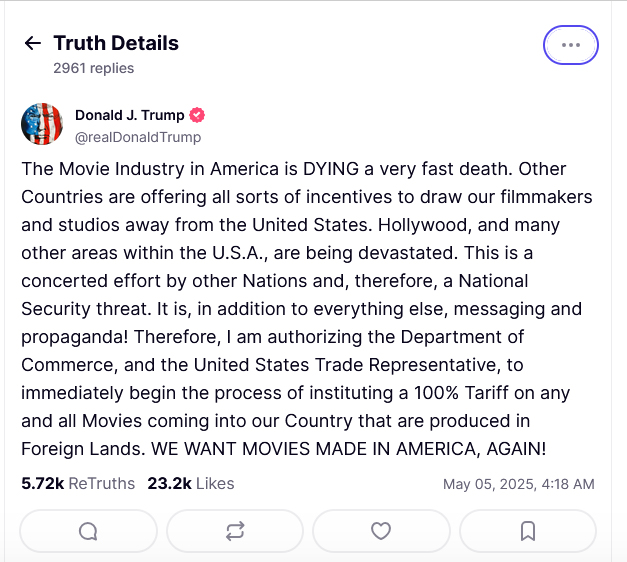The US president announced on Sunday that he has authorized government departments to impose the tariff “on any and all movies coming into our country that are produced in foreign lands”.
In a statement posted to Truth Social, Trump asserted that foreign governments are actively offering lucrative incentives to attract American filmmakers and studios overseas, calling it a “coordinated effort” that amounts to a “national security threat” — a phrase he emphasized with capital letters throughout the post. In response, he declared that both the Department of Commerce and the Office of the United States Trade Representative would immediately begin implementing the proposed tariffs.
U.S. Commerce Secretary Howard Lutnick briefly responded to the announcement, saying, “We’re on it.”

However, key details surrounding the policy remain ambiguous. The announcement did not clarify whether the tariffs would apply to films financed by American studios but shot internationally — a common practice in the film industry.
Major upcoming titles such as Deadpool & Wolverine, Wicked, and Gladiator II were all filmed outside the United States, despite being produced by U.S.-based companies.
It also remains uncertain whether the tariff would extend to streaming platforms like Netflix or apply solely to theatrical releases, nor how such tariffs would be calculated or enforced in the digital distribution age.
This policy follows Trump’s January appointment of actors Jon Voight, Sylvester Stallone, and Mel Gibson to a committee tasked with revitalizing the U.S. film industry and making Hollywood “bigger, better, and stronger than ever before.”
For years, film and television production has been steadily relocating away from California to international destinations offering generous tax incentives, significantly reducing production costs for studios.






































